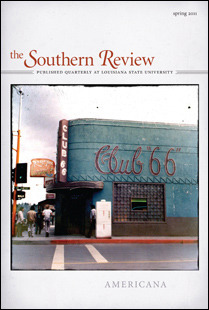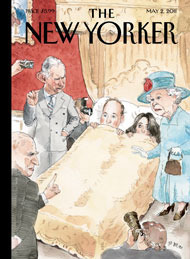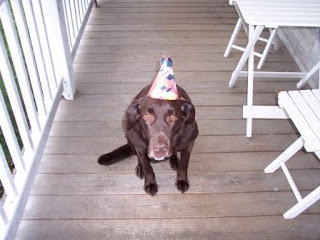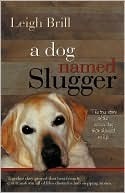Clifford Garstang's Blog, page 133
May 1, 2011
Short Story Month 2011: The Southern Review -- Bonnie Jo Campbell
 It's short story month, and for my first post of the month I've chosen a story by Bonnie Jo Campbell in the latest issue of The Southern Review (Spring 2011). This is the issue that arrived in the mail just days after we heard the terrible news that the editor of TSR, Jeanne Leiby, had been killed in an automobile accident. The magazine has been sitting on my desk since it arrived.
It's short story month, and for my first post of the month I've chosen a story by Bonnie Jo Campbell in the latest issue of The Southern Review (Spring 2011). This is the issue that arrived in the mail just days after we heard the terrible news that the editor of TSR, Jeanne Leiby, had been killed in an automobile accident. The magazine has been sitting on my desk since it arrived.In "What There Was," Campbell explores one of the dark sides of the circus—way darker than Cathy Day's The Circus in Winter, which was already pretty dark. The focus here is on Buckeye, a young woman who is pregnant and has an appointment to have her third abortion. But she's hesitating because she loves "Black Mike," so called because he's black and there are other Mikes in the troop. Mike seems fond of her, too, and daydreams about the baby they might have, although Buckeye tells him that if they do settle down together he'll have to let her see him naked—it is a quirk of his that he always keeps himself covered. Red, an older man in the troop who looks out for Buckeye, insists that they must go; finally, reluctantly, Mike lets go of Buckeye and she leaves with Red. But they've not gone very far when she runs back to Mike. When he sees her, he slowly reveals what's hidden under the shirt: horrific wounds and scars and needle marks. He's saying, "This is what life with me would be like," and she finally hears.
The title of the story is vaguely reminiscent of the amazing Tim O'Brien story, "The Things They Carried," and Campbell also uses repetition of the phrase in somewhat the way O'Brien does. The story begins, "There was the long silver whip of the circus train . . . there was pale-skinned Buckeye, a ditch-water blond . . .and Black Mike, skin as black as coffee." And then, "Coming down the hallway there was Red . . ." and "There was Buckeye's bare thigh pressing against Mike's black-clad thigh." And later, "There was Buckeye putting her finger to her lips . . ." And later, "There was Buckeye saying a kind of truth that felt nice." And later, "There was Red standing before her . . ." and ". . . there was Buckeye walking out with Red, leaving Mike sitting on his bunk . . ." The effect of this litany of what there was is to make this dark portrait seem natural, inevitable. It's just the way it was. That's what was there. Nothing unusual in this girl who grew up in a household in which she was abused by the men in her mother's life. Nothing unusual about Mike's prison experience, his home-made tattoos, his scars, and his apparent self-destructiveness.
Although Campbell does apparently let Buckeye see the light at the end of the story, or at least the truth about Mike, Buckeye lives in a world that isn't real. Her own name is really Becky (and she's from the Buckeye state, Ohio), but the name Becky is a common one, and she wishes it were Rosella, or Annabella, or Margerina, or Marmalada. She doesn't like Mike's name, either, and wishes he'd told the bosses that he was Mitch or Mick ("Those are white names," he tells her). She also thinks Mitch would be a good name for their baby if it's a boy ("That's a name for a white kid," he says). And if it's a girl, she thinks they could give her a beautiful name, like Annabelle, or Mirabelle, or Belladonna, Donnamaria. Mike suggests "Mary," after his mother, but Buckeye insists that a person needs to have her own name. Red's name is an issue, too. At first Buckeye can't remember what it is, but at the very end of the story, when she finally accepts Red's help, she remembers his real name.
There's more here, too. Heat is a factor. In the train car where they live, pulled over on a siding in Phoenix, the heat is nearly unbearable. And when she shared an apartment back in Akron, Buckeye remembers that she couldn't afford air-conditioning. She also imagines how happy Mike will be in air-conditioning. Yet she knows that staying in Phoenix with him could be a problem: "Being in heat like this all the time would make anybody crazy." We get the feeling that Buckeye knows crazy, and maybe she sees it in Mike already.
The story is a short one, but it's filled with a lot to think about.
Published on May 01, 2011 12:18
April 30, 2011
Short Story Month 2011
 March was Small Press Month. April was Poetry Month. And May is Short Story Month.
March was Small Press Month. April was Poetry Month. And May is Short Story Month.I have participated in Short Story Month to varying degrees in the past, but this year I plan to commit to looking at least one story a day, most from literary magazines, but possibly also from a collection or two.
So, stay tuned. The short story comments will begin . . . tomorrow.
Published on April 30, 2011 17:14
The New Yorker: "Deniers" by Sam Lipsyte

On the plus side, the story is available to read for free, at least for now. Get ´em while they're hot. And the protagonist, Mandy, is pretty complex, interesting character, so I kept reading because I wanted to know what she would do.
On the other hand, this story has feet in two worlds, as stories of recovering addicts often do, and one of those worlds—hard drug use—I simply don't enjoy reading about. Some people do, I know, so I don't fault the author for this. I just don't like to go there myself.
In any case, Mandy has other issues. She is the daughter of a holocaust survivor, Jacob, who is grumpy old man who lives in a nursing home. This is where the story begins and end, which is interesting structurally, because almost immediately the story jumps back in time to Mandy's childhood, her mother's affair and suicide (the details of which come out through her sister, which is another interesting technique), her relationship with Greg, another drug user, and her attempts to stay clean. We also see the character of Tovah Gold, Mandy's pretentious poet friend. For writers, at least, she provides some comic relief in an otherwise pretty dark story.
Along comes Cal, who, as it turns out, is a recovering neo-Nazi who is trying to get to know Jews as part of his process. Okay, now THAT's interesting. Unfortunately, Mandy drinks wine with Cal, which is a slip from her own recovery.
The title of the story works on a number of levels, of course. There are holocaust deniers, of which Cal may once have been one. But there are deniers of other kinds—Greg and Mandy with their addictions, and even Jacob. All his life, Jacob has refused to talk about the war, to teach Mandy about what he went through. She doesn't even know that the language he speaks is Yiddish until Tovah tells her. And Jacob also seems to be in denial about his wife's death, as he asks about her (in his encroaching senility).
The ending is fun, as it returns to the "poem cycle" that Tovah is writing, and the notion that one can ride a poem cycle: "a poem cycle you could also actually ride for its aerobic benefits, and she'd pedal that fucker straight across the face of the earth until at some point she'd coast right off the edge . . ."
Not bad.
May 2, 2011: "Deniers" by Sam Lipsyte
Published on April 30, 2011 05:16
April 28, 2011
zine-scene.com
 This looks very interesting. Zine-Cine promises a calendar of online magazine releases, online reprints of stories published in print, spotlights on issues of online magazines, and more.
This looks very interesting. Zine-Cine promises a calendar of online magazine releases, online reprints of stories published in print, spotlights on issues of online magazines, and more.It looks like a nice, underserved niche. And they're looking for reviewers/essayists!
zine-scene.com
Published on April 28, 2011 06:37
Will there be cake?
 Today, April 28, is Bhikku's ninth birthday. He's not a big fan of party hats, but he'll enjoy his treats.
Today, April 28, is Bhikku's ninth birthday. He's not a big fan of party hats, but he'll enjoy his treats.This past year has been a bonus for him, since he almost died in April 2010 from a gallstone that had blocked his bile duct. If he hadn't undergone emergency surgery, he wouldn't have survived. But he did, and here he is today, more or less holding still for his birthday portrait.
Happy Birthday, Bhikku!
Published on April 28, 2011 06:05
April 27, 2011
What Editors Want; A Must-Read for Writers Submitting to Literary Magazines | The Review Review
This terrific article has been making the rounds on Facebook. I recommend it.
What Editors Want; A Must-Read for Writers Submitting to Literary Magazines | The Review Review
What Editors Want; A Must-Read for Writers Submitting to Literary Magazines | The Review Review
Published on April 27, 2011 16:11
Book Review: A Dog Named Slugger by Leigh Brill

Leigh Brill
Bell Bridge Books, 2010
I suppose I've always been curious about service dogs. From an early age I was aware of seeing-eye dogs, the animals that help guide the blind. They've been around since at least the mid-16th Century (according to Wikipedia), but the use of service dogs by people with other disabilities is a relatively new phenomenon. No doubt because of the Americans with Disabilities Act, which ensures access to public places by people with disabilities and explicitly protects the right of access with service animals, they've become much more common.
So I see them from time to time, but didn't know much about them. As a dog lover, I welcomed the opportunity to take a look at Leigh Brill's 2010 book, A Dog Named Slugger, about her long partnership with her service dog. It's a charming story and answered many of the questions I had about the dogs—how do they behave when they're "off duty"; what's proper etiquette for a stranger's interaction with the dogs; how often do people with disabilities encounter access problems with their dogs. The book is also written in plain language that will appeal to readers of all ages.
Leigh Brill has congenital cerebral palsy. Growing up, she tried to hide her condition and was embarrassed by it. But as she grew older and became more independent—going to college, working—hiding it was no longer an option. One day she met someone on her college campus who had a service dog, and that meeting changed her life. It wasn't long before she applied to get one of her own and that led her to Slugger, a young yellow lab who had undergone service dog training. They were a perfect match and clicked almost immediately. Slugger could do things that I can't imagine my own lab doing (because he hasn't been properly trained): closing doors, turning lights on and off, retrieving dropped items, barking on command to call for help, sticking close by to provide support when his partner is walking, and much more.
Over the years, Brill and Slugger worked closely together, even as their lives changed. Brill, who has a Masters degree, began working in a community mental health center and also got married. Eventually she moved to a new home and a new job in a new city. But Slugger stayed with her through it all. The two of them frequently visited schools and gave demonstrations of how they interacted and what Slugger did to help Brill deal with her limitations.
One of the messages of the books is that a service dog is a working dog, but he's also a dog. When his work clothes come off (he wears a harness and pack for carrying things), he's off duty and just a dog. He likes to play and fetch and do all the things that dogs normally like to do. But when the uniform goes on, he's all business and his concentration is focused on the needs of his partner.
If you happen to be a dog lover, you'll probably get emotional, as I did, toward the end of the book when Slugger is helping to train his successor, Kenda, and is allowed to retire. Although the moment when Brill has to say goodbye to Slugger is heart-wrenching, we know that they both lived enriched lives thanks to their partnership.
This is a very fast read, recommended for young readers and adults, especially dog lovers and those curious about what life with a service dog would be like.
The author's website is www.LeighBrill.com .
Published on April 27, 2011 06:18
April 24, 2011
Review of In an Uncharted Country
 Marjorie Hudson (Accidental Birds of the Carolinas) has some very nice things to say about my book in her mini review: In an Uncharted Country, including this: "Garstang has the gift of sharp observation of the human spirit and body and all its ways–dumb, drunk, young, wise, heartsick, brave, hopeful."
Marjorie Hudson (Accidental Birds of the Carolinas) has some very nice things to say about my book in her mini review: In an Uncharted Country, including this: "Garstang has the gift of sharp observation of the human spirit and body and all its ways–dumb, drunk, young, wise, heartsick, brave, hopeful."
Published on April 24, 2011 17:53
Sunday
 It's Sunday. Easter, although that's not my thing. I've been working on Prime Number stuff all morning--accepted some wonderful stories--and I'm about to turn my attention to house and yard chores, of which there are too many to list. (I'm a big fan of lists, but this one would take too long!)
It's Sunday. Easter, although that's not my thing. I've been working on Prime Number stuff all morning--accepted some wonderful stories--and I'm about to turn my attention to house and yard chores, of which there are too many to list. (I'm a big fan of lists, but this one would take too long!)Top priority is the yard. Lots to do out there, but I think the most satisfying accomplishment for the day will be getting the garden tilled. I have struggled with weeds each year I've done this garden, so I'm trying a new approach this year. I'll lay garden plastic over the dirt, and cut through it to plant. I'm also not bothering with seeds this year, unless come across something I must have. Instead, I plan to get plants from the farmer's market and go with those. Instant garden. Instant after the tilling, the laying of plastic, the digging, the mulching, the watering.
A couple of days ago I went down to the garden to inspect and move the compost around a little. The only sign of life, other than weeds, are some very healthy looking chives. When I was done, I left the gate open because . . . I'm not sure why. I guess I thought it would nice to let critters come in and eat the weeds if they wanted to. Yesterday I was walking the dog and he noticed something inside the garden fence (we were outside). He sniffed it and I discovered it was a big Eastern Box Turtle. When I went back later, it was gone. (I'd left the gate open again.)
The lawnmower broke. Again. While I was mowing. It's a 10-year-old lawn tractor, although it had major service done last year. Yesterday I suddenly noticed that it wasn't responding to the steering wheel as I was riding. I kept going straight, just so I could get a sense of the problem and then I saw it. The arm that connects the steering mechanism to the left front wheel was dangling loose. I stopped and inspected--a nut had disappeared. (I'm not all that handy, but it's not hard to compare the same setup on the right and left and figure out what's different.) So I searched my garage for a nut, found one--the largest I had--and gave it a try. It didn't quite fit. Made a trip to Lowes, but the next largest was going to be too big! So I made do with the small one, and hoped I didn't do damage to the bolt as I tightened. It's not quite still, but at least I was able to continue mowing, and could steer.
I have to make a presentation in my French class tomorrow: Je me présente. I wrote it all out but I don't think we're allowed to use note . . .
Okay, gearing up for chores.
Published on April 24, 2011 09:43
April 22, 2011
Garbage In, Garbage Out
 All you need to know about writing is contained in a brilliant blog piece by Austin Kleon: How to Steal Like an Artist (and 9 other things nobody told me).
All you need to know about writing is contained in a brilliant blog piece by Austin Kleon: How to Steal Like an Artist (and 9 other things nobody told me).To sum up his summing up, Write what you like. Be nice. Garbage in, garbage out.
Published on April 22, 2011 12:08



